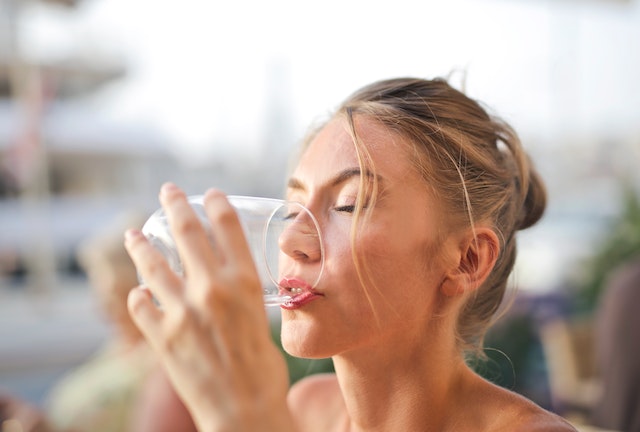Water is an essential component that is required for healthy bodily function, and our bodies cannot operate without it. It is responsible for around sixty percent of the total weight of our bodies and is engaged in a wide variety of physiological activities, such as the regulation of temperature, the transportation of nutrients and oxygen, and the elimination of waste. As a consequence of this, it is very necessary to consume enough amount of water on a daily basis in order to maintain one’s health and hydration.
The quantity of water that you should consume on a daily basis is determined by a number of variables, including your age, gender, weight, level of activity, and the environment in which you live. Nonetheless, a good rule of thumb is to consume at least eight glasses of water every day that are each 8 ounces in capacity. This is comparable to two liters of water or a half gallon. This is a decent rule of thumb to follow for the majority of individuals, and it is sometimes referred to as the “8×8 rule.”

Using your body weight as a guide can be one way to estimate the amount of water that you need to consume. Depending on their gender and overall body weight, the Institute of Medicine suggests that individuals consume between 91 and 125 fluid ounces (2.7 to 3.7 liters) of water per day as their daily water intake. For illustration’s sake, an individual who weighs 150 pounds (68 kg) should strive to consume at least 75 ounces (2.2 liters) of water on a daily basis.
Having said that, it is important to keep in mind that the aforementioned recommendations are only recommendations. They don’t take into consideration how individuals’ metabolisms, activity levels, and environments differ from one another. For instance, if you live in an area that is often hot and humid or if you engage in strenuous physical activity, you may need to drink more water in order to keep hydrated.
Paying attention to the signs that your body sends you might be another method to figure out whether you are getting enough water in your diet. The feeling of thirst is the most apparent indicator that you need to increase the amount of water that you consume, but it is not always dependable. When you first start to feel thirsty, you may already be in a mild state of dehydration. In addition to a strong yellow color in the urine, other symptoms of dehydration include dry mouth, weariness, headache, and dizziness.

Instead of waiting until you’re thirsty before taking a drink, try to make it a habit to take fluids at regular intervals throughout the day. This will help you stay hydrated. Always have a bottle of water with you, and be sure to take frequent sips from it. In addition, you should strive to drink water before, during, and after meals, as well as before and after physical activity.
Your daily hydration requirements may be met not just by drinking water but also by consuming a variety of other fluids. Tea, coffee, and juice are all examples of beverages that include water and may help you keep hydrated. However, these beverages also contain other compounds, such as caffeine and sugar, which, if eaten in large quantities, can have the opposite effect. It is vital to consume water with alcoholic beverages or to alternate between alcoholic beverages and non-alcoholic drinks since alcohol may also cause dehydration.
Generally, the quantity of water you should drink each day is contingent on your own requirements as well as the conditions in which you find yourself. The 8×8 rule is a decent beginning point, but you may need to change your consumption depending on variables such as your body weight, the degree of exercise you get, and the temperature where you live. You can guarantee that you are receiving enough water to maintain your health and hydration levels by paying attention to the cues that your body sends you and by drinking water on a consistent basis throughout the day.

